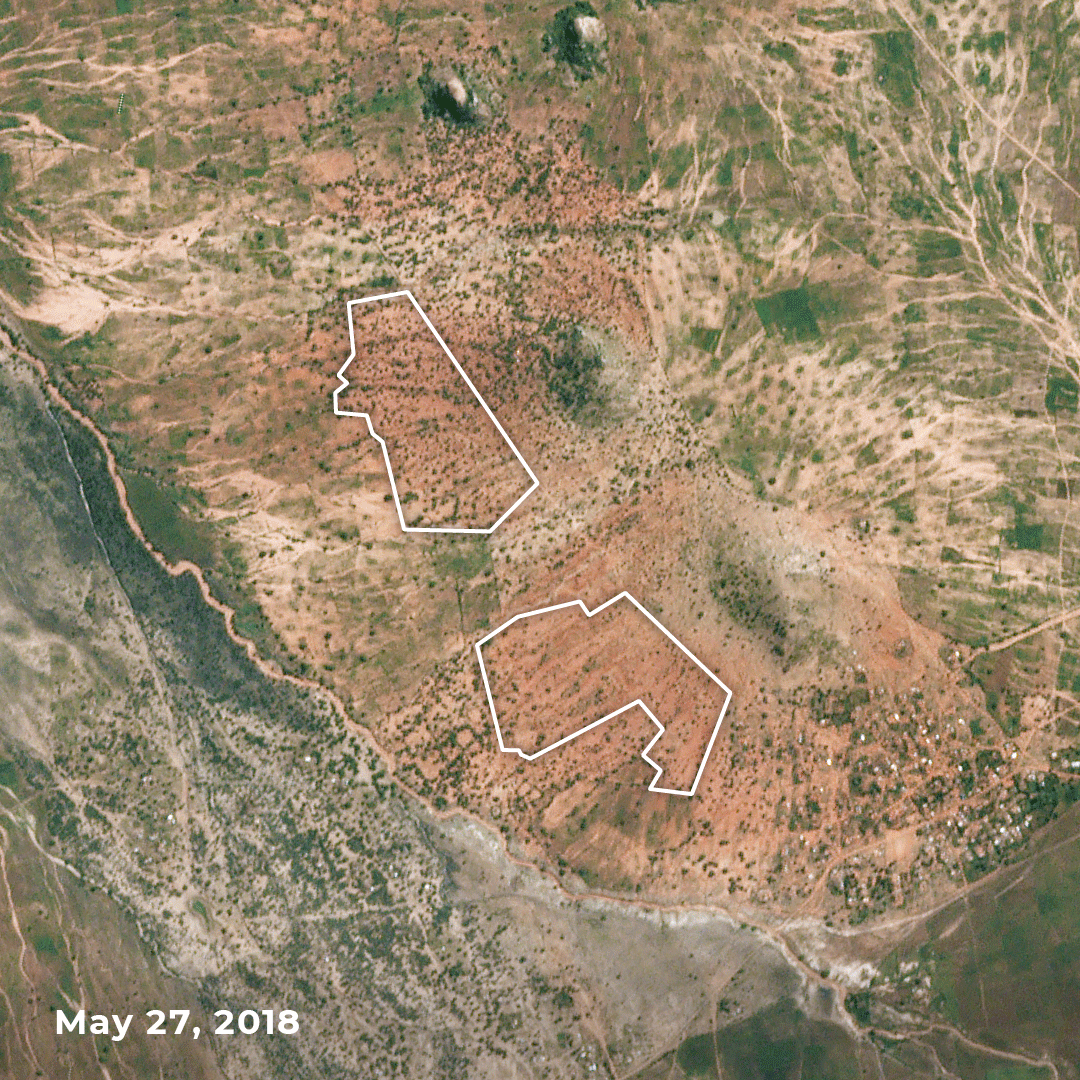Snapshots #51: Adaptation
November 10, 2022
SkySat • Sharm El-Sheikh, Egypt • November 6, 2022
This is an archived issue. Sign up here to receive the Planet Snapshots newsletter every Thursday morning.
World leaders, delegates, and activists are converging in Egypt for COP27 with climate change top of mind. The tense global negotiations are filled with reprimands, financial jousting, rallying speeches, and a general consensus that we’re once again not doing enough to address the greatest collective challenge of our time. And like most high-stake group projects, breakthroughs arrive at a glacial pace and with intense debate.
Current projections suggest that we’re on track for an average warming somewhere in the range between the Paris Agreement’s 1.5°C goal and the catastrophic extremes of 4 to 5°C. Not quite Eden, not quite end times, but world-altering nonetheless. That means that without drastic and immediate intervention we’re locked in for further ecosystem collapse, drought, sea level rise, and all the other horsemen of the climate apocalypse.
NASA/USGS Landsat & PlanetScope • Sea level rise in Demak, Java, Indonesia • August 5, 2002 — July 30, 2022
If there’s one thing every COP27 attendee can agree on, it’s that the climate crisis is going to cost a lot. But who foots the bill is up for debate and a focal point for negotiations this week. Phasing out fossil fuels and expanding renewable energy sources has a high price tag. And already the cost of climate-inflicted damages is estimated to be 20% of global GDP, or $525 billion. Yet some costs go far beyond dollar signs: people displaced, heritage erased, and lives lost.
SkySat • Flooding in Nowshera, Pakistan • July 15 — August 29, 2022
The planet has warmed just over 1°C since pre-industrial levels and countries around the world are already dealing with those associated impacts, albeit disproportionately. With more warming in store and tipping points on the horizon, how we adapt to our changing environment is another critical, and costly, topic of discussion. So this week let’s take a look at some of the ways in which we’re adapting our constructed world to brace against intensifying disasters.
SkySat • Rikuzentakata, Japan • November 28, 2017
Sea level rises as the world warms, threatening over 600 million people living in low-lying coastal areas and posing an existential threat to islands that could be completely submerged within the century. Today, modern engineering can help achieve feats formerly reserved for those with divine powers. Sea walls like those seen in the above image or storm surge barriers, like the one below in the Netherlands, may not be able to part the seas, but they can help manage the rising tides.
SkySat • Eastern Scheldt Storm Surge Barrier, The Netherlands • May 6, 2020
But in some areas there are simpler, less costly, options than constructing sea walls. Wetland and mangrove restoration provide nature-based solutions that are extremely effective at storing water, preventing erosion, and reducing wave height (not to mention their biodiversity benefits). It’s estimated that mangroves save people $82 billion from flood damages each year, further highlighting the restorative importance in mangrove-rich places like Guinea-Bissau.
PlanetScope • Tombali, Guinea-Bissau • June 26, 2022
Cities are literal hotspots, reaching temperatures of up to 10°C (18°F) hotter than their surrounding countryside. There are a few contributing factors to what’s called the “heat island effect,” but a leading one is the replacement of natural land cover with urban infrastructure. In order to avoid the deadly effects of soaring temperatures and increasing frequency of heat waves, expanding tree cover within cities is vital. MIT’s Treepedia list measures tree canopy in major cities and ranks them according to score. Paris, for example, has only 8.8% tree cover, while Singapore, a modern green city, scores at 29.3%.
PlanetScope • Paris, France & Singapore • June 15, 2022 & March 5, 2022
Climate change is impacting the frequency, duration, and intensity of wildfires, posing major challenges for people living in susceptible areas. One way to get ahead of unpredictable and unruly wildfires is to start smaller and more manageable fires beforehand. Prescribed burning, as it’s called, reduces the fuel load available for unplanned destructive fires and helps rejuvenate landscapes.
SkySat • Prescribed burn, Grand Canyon National Park, Arizona • December 5, 2021
Like wildfires, climate change is also exacerbating dry conditions which lead to drought and desertification. Places like China and countries in Africa’s Sahel region are spearheading ambitious green wall projects to slow the desert’s march. But others have a simpler approach: digging semi-circular pits called bunds that help the soil capture and retain rainwater instead of it washing away on the harder upper layer of cracked dirt. Better water retention means more fertile soil, regrowth of vegetation, and improved livelihoods for the communities that depend on a healthy Earth. In Pembamato Tanzania, Justdiggit dug bunds on two plots of arid land in 2018. Four years later the plots emerge from the bone dry soil in verdant green.
PlanetScope • Pembamato, Tanzania • May 27, 2018 — May 11, 2022
Perhaps it occurred to you while reading that all of these examples are good ideas regardless of how much warming actually happens. Climate change may make floods, fires, and sea level worse. But don’t we want healthier ecosystems, greener cities, and fortified coasts anyway? As the skeptic in Joel Pett’s cartoon says, “What if it’s a big hoax and we create a better world for nothing?” There’s still a lot for delegates to hash out at COP27 and following conferences, but adapting to an unpredictable environment is a wise choice. The adapted world may look unfamiliar, but it’s far preferable to the alternative.
PlanetScope • Restored wetlands, South San Francisco Bay, CA, USA • August 10, 2022
All imagery Ⓒ 2023 Planet Labs PBC
Editor: Ryder Kimball | Images: Ryder Kimball, Robert Simmon, Max Borrmann, and Julian Peschel










